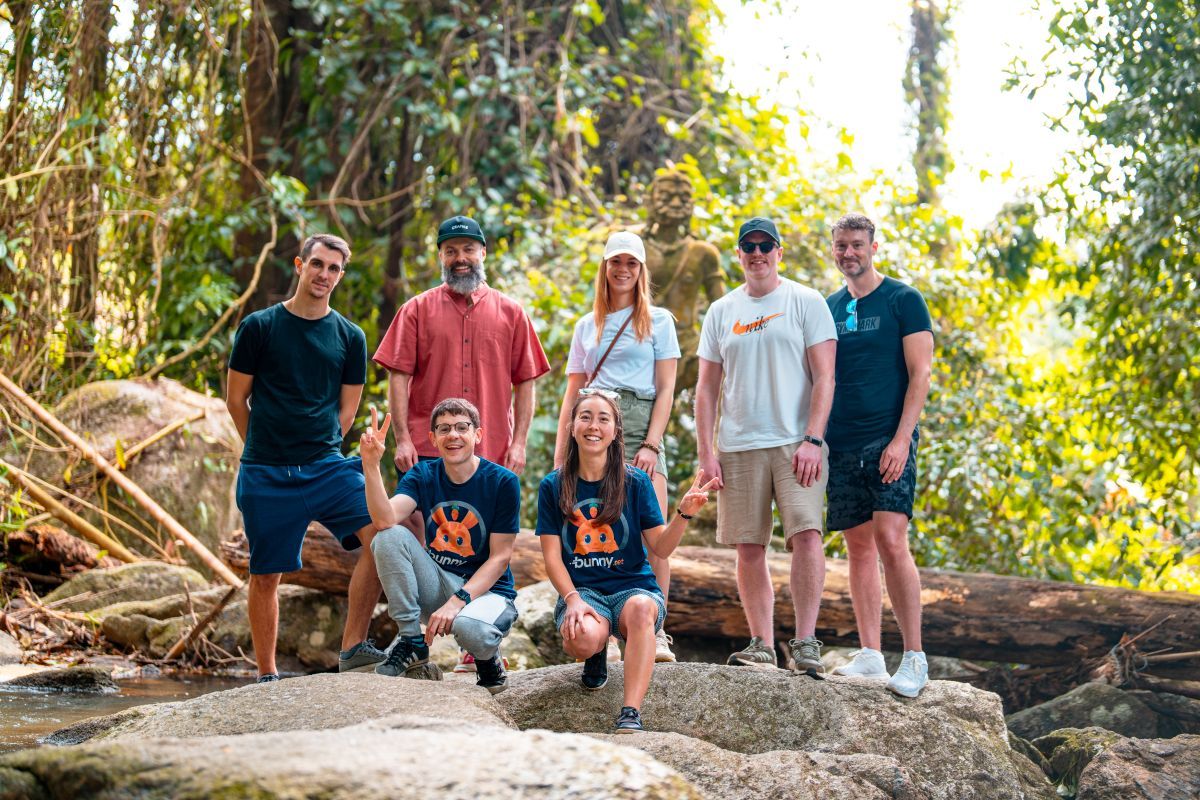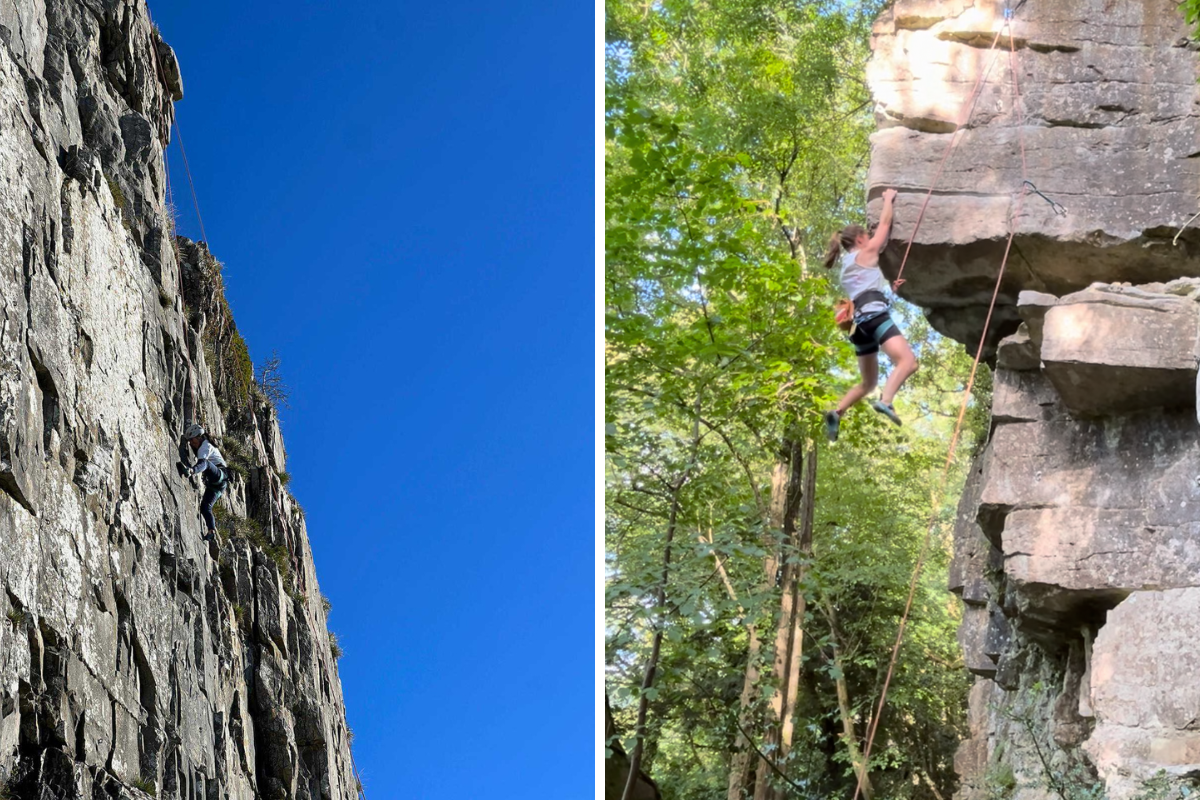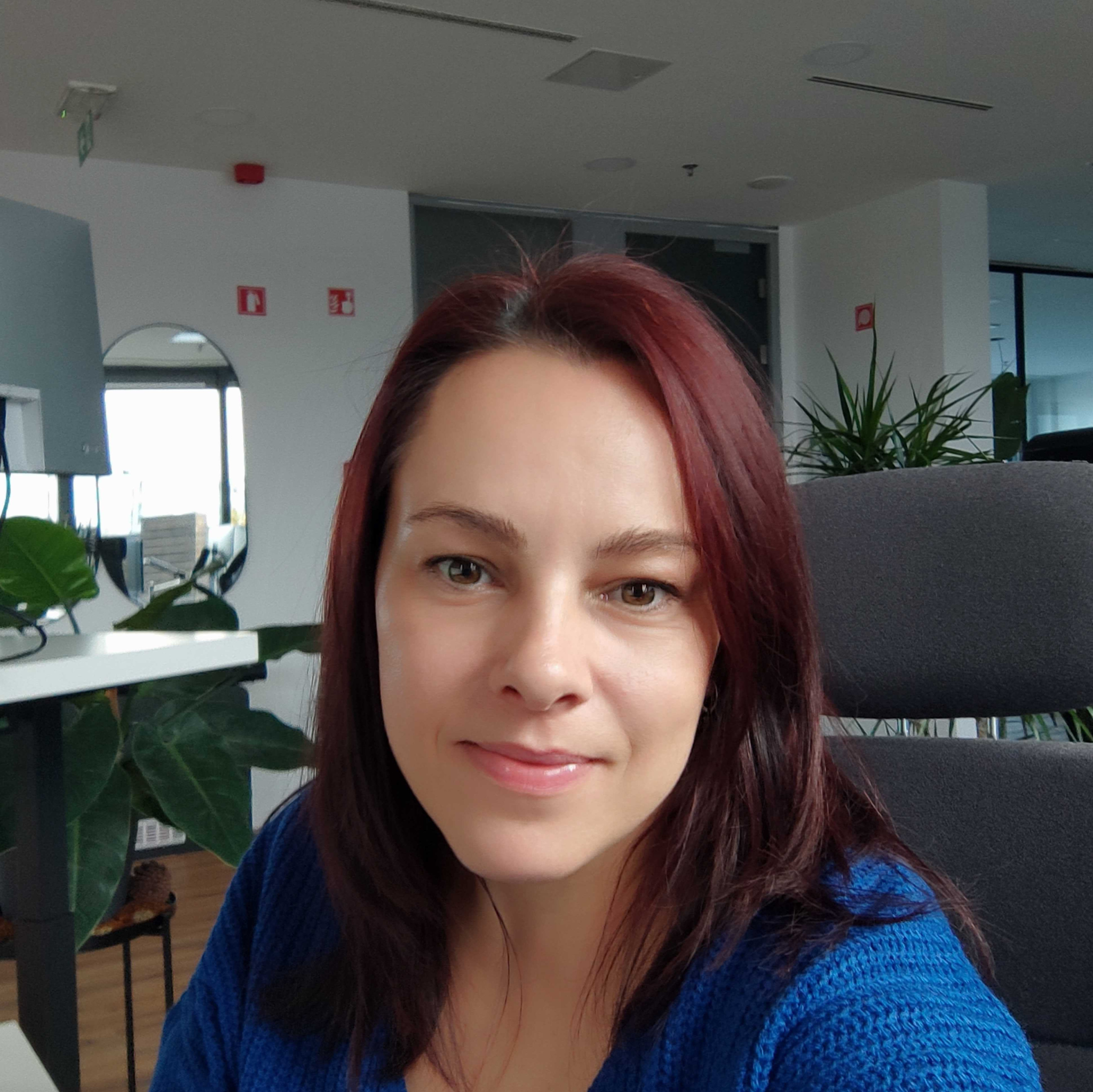Meet Yumika, bunny.net’s new Chief of Staff! Her career spans investment banking, startups, and leadership roles at companies big and small. She brings invaluable experience, a fresh perspective, and a wealth of expertise to the team.
Yumika’s passion for creating meaningful impact, knack for navigating organizational challenges, and adventurous spirit make her an exciting addition to our fluffle. Her story is all about adaptability, creativity, and striving for excellence.
Q: Can you quickly introduce yourself? What is your position at bunny.net?
– I’m delighted to be here! I’m Yumika, I’m Bunny's Chief of Staff. I joined recently, and I’m eager to get stuck in.
Q: Could you share your journey so far—you started off in investment banking, is that right? What led you to bunny.net from there?
– Immediately after university, I joined the world of investment banking. I really believe in what finance can do to catalyze economic growth. It was an amazing place to start my career, but I realized I wanted to have a bigger impact. Startups and smaller companies are where you can have a much greater and tangible impact on the mission and vision. So I started shifting into FinTech, and I’ve worked in companies at varying stages, from bootstrap to post-acquisition and I did a stint in an e-bike company as well before joining Bunny.
Q: What inspired you to make the switch from investment banking to startups?
– It came down to having that impact that I was looking for and being part of a mission-driven team. In banking, the impact of your work is quite far removed from the day-to-day whereas I think in startups, you can directly see it and be part of the vision.
Q: Was there a particular moment or experience that made you take the leap?
– It was a cumulation of my time there and realizing that in a corporate setting, you have a specific way to go about things as there’s a set “ladder.” After spending more time there, I realized that I wasn’t driven to take that structured path; I wanted to make my own path.
Q: You've held roles in companies at all stages—from seed-stage to post-acquisition. How do these experiences shape the way you approach leadership and strategy?
– What underpins it is adaptability. You want to create strategies and processes that are fit for purpose, as it’s really not a one-size-fits-all zone. You have to think about what it means for the team that currently exists, what the mission of the company is, and what we can do to help get the company to that next point or stage.
That looks totally different for a company that’s just raised seed funding and has five to ten people versus a company that’s just been acquired by a listed company and is trying to integrate different cultures. For me, it really means adapting, understanding the people, and what drives those particular people so that you’re not just shoehorning something into it.
Q: You’ve been both a Chief of Staff and a COO. What are the biggest differences between these roles, and what excites you about the challenges of each?
– It’s a Venn diagram, I’d say. There’s definitely overlap between them, but they’re slightly different. I would say that both focus on driving performance in teams and thinking about the processes we can put in place to really get a team to thrive.
A chief of staff is a bit more project-based–your team is the executive team, and you’re working to get the top performance out of them—so thinking about our OKRs, how we structure meetings, how we can drive the strategy, whereas the COO is a little bit more of a “business as usual” role. You’re overseeing more functional departments and thinking about how to optimize them and drive their performance, as well as the executive team. So, they’re slightly different, but there’s definitely an overlap.

Q: What motivated you to join bunny.net?
– For me, it was really the mission and how we build products. Obviously, the space is quite different to what I’m used to, coming from Finance, but it was so clear to me that Bunny was looking at a problem that actually existed and creating a solution from that. When Dejan was describing his story to me, I was amazed at how it grew from something organic.
The fact that it’s been going on for so long with that customer obsession was really inspiring. The brand is really playful, cool, and innovative in a space that can be quite unapproachable and “scary” for non-technical people, but Bunny seemed very approachable. When I met the team, everyone was so friendly and engaged that it was just like a place I wanted to work.
Q: Did something about our mission, team, or approach stand out to you?
– It was that customer focus that came through from everybody I was speaking to; it came across when Dejan was talking about the origin story. The values can’t just be things that are written down on the wall—you have to see people living by them. Hearing about how we’re creating the product roadmap and how we’re prioritizing those things, combined with the fact that the company grew from the simple origins, made the mission feel very true from day one—not just something that was said.
Q: What do you hope to bring to bunny.net as Chief of Staff?
– I hope I can bring some organization into the chaos. When companies grow so quickly, it's easy to accrue a lot of things that just kind of spread, which is amazing, but being able to streamline those, brings a bit of organization—not too much, so it doesn’t slow things down, but just enough so that people feel like they can do their best work—that’s what really motivates me. So I hope I can bring a little bit of rigor, a little bit of organization and structure, so we can really take ourselves to the next level.
Q: What are you most excited to dive into in your new role?
– Joining in December means I’m at the perfect time to look into planning, so 2025, Q1. I think next year is going to be a huge year for us. What really excites me right now is just getting up to speed with all of the departments and understanding the areas in which I can have the biggest impact. My to-do list is ever-growing, so I’m just trying to figure out what I should be prioritizing amidst wanting to start our planning already in earnest.
Q: At bunny.net, we believe in keeping things fast, simple, and fun. How does that resonate with your own approach to work and leadership?
– I really like it because it’s quite refreshing. Coming from a corporate background, people definitely wouldn’t often describe work as fun, but it should be something you enjoy, and it’s a really nice way to approach your work. Keeping things simple is always something positive; it just makes things work better if you don’t have to really dig into such complex materials if you can simplify things. It also means you’re an expert in that thing. Being fast is part of the journey; that’s one of the beauties of startups and scale-ups—you get things done, and you move quickly. I think that’s what keeps things exciting.
Q: How do you adapt to different corporate cultures, and what elements of a company’s culture are most important to you?
–I’m half Japanese and half English, and I grew up in Spain. I was exposed to quite a lot of internationalism growing up, and I think what that taught me was how to be adaptable to different people and different situations. I think it’s essential to change my way of working to adapt to the company and make sure that the company can perform at its best rather than trying to get everybody to change to my way. So, I’d like to think I’m a little bit of a chameleon in that sense.

Q: Tell us about your hobbies and passions.
I really like to keep active, so I do a lot of strength training. I'm also a climber. I think having movement is really important, especially when you’re doing an office job. But I’m also a passionate cook—I absolutely love food and I’ve bought so many different kitchen gadgets, so if you’re ever interested in anything from a sous-vide to a roast, I’d love to talk to you about that.
Q: Do you find that these hobbies influence your mindset or approach at work?
Yes, I think that cooking is really about creativity and working under pressure. You know, chefs and kitchens are notoriously high-pressured environments, and it’s all about the timing, so I think that also helps me manage things.
But in terms of being active, I think climbing is an amazing sport because it’s really about your mental and physical connection. I’ve never experienced something that‘s as “flow-state” as that. When you’re on the wall, the only thing that you're thinking about is how to get up and fight the fright of falling. Also, being open to falling and failing helps me realize that when we fail at work, it’s actually an opportunity to learn, and it means that we’re pushing ourselves. I think that a culture of failure is something that you need to have as a startup. Because if we don’t fail, we don’t learn, and we’re just following the kind of standard path that I was talking about before. I think those two things really help me at work.
Q: What are the top 3 items on your personal bucket list?
I really want to go to the Great Wall of China—most of my bucket list is actually travel items. I’d love to dive at the Great Barrier Reef. I think I want to hike to Everest Base Camp as well, but that's maybe more of an asterisk one.


